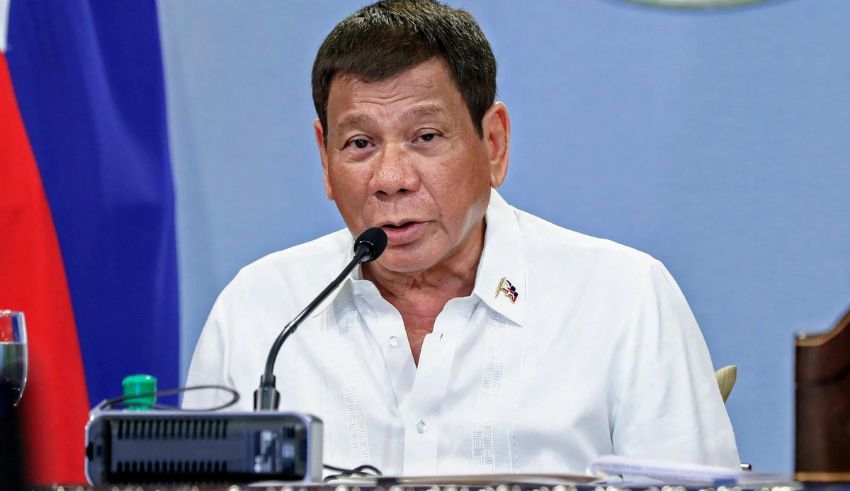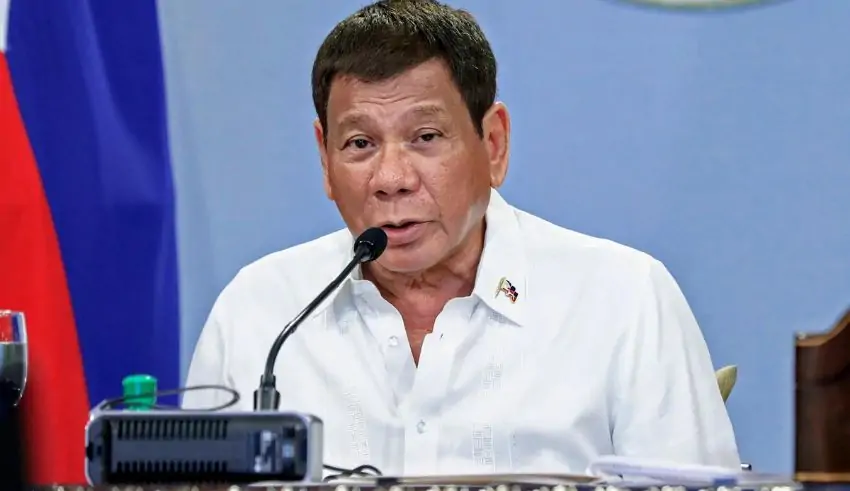

(C) South China Morning Post
The Philippines, a Southeast Asian archipelago that claims part of the South China Sea as its exclusive economic zone (EEZ), has been embroiled in a long-standing territorial dispute with China, a regional power that claims almost the entire sea as its sovereign territory.
The dispute has escalated in recent months, as China has increased its presence and activities in the disputed waters, such as building artificial islands, deploying military and paramilitary forces, and harassing Filipino fishermen and vessels.
The dispute has also exposed and aggravated the internal rifts and tensions within the Philippines, as former president Rodrigo Duterte, who hails from the southern island of Mindanao, has called for the secession of his home region from the rest of the country, as a protest against the current administration’s stance and policies on the South China Sea issue.
The secession call and response of Duterte and his supporters are:
Duterte, who served as the president of the Philippines from 2016 to 2022, and who is now a senator and the leader of the opposition, has repeatedly expressed his dissatisfaction and frustration with the current president, Ferdinand Marcos Jr, who is the son of the late dictator Ferdinand Marcos, and who won the 2022 election by a narrow margin.
Duterte has accused Marcos of being a puppet and a traitor to China, and of betraying the interests and rights of the Philippines in the South China Sea. Duterte has also claimed that Marcos is using the constitutional amendment process, which is meant to ease foreign investments, to extend his term and consolidate his power.
As a result, Duterte has called for the independence of Mindanao, the second-largest and southernmost island of the Philippines, which is home to about 25 million people, and which has a history of separatist movements and armed conflicts. Duterte has said that he will initiate a signature campaign to gather support for the secession of Mindanao, and that he will seek the recognition and assistance of the United Nations and other countries.
The secession call of Duterte has met with strong opposition and condemnation from the government and the majority of the public, who have denounced it as illegal, unconstitutional, and unpatriotic. The government, led by Marcos, has said that it will not tolerate or allow any attempt to divide or destabilize the country, and that it will use all legal and lawful means to prevent and stop the secession of Mindanao.
The government has also said that it will continue to assert and defend the sovereignty and rights of the Philippines in the South China Sea, and that it will seek peaceful and diplomatic solutions to the dispute with China. The public, especially those from the other regions of the country, such as Luzon and Visayas, have also expressed their disapproval and dismay over the secession call of Duterte, and have urged him to respect and uphold the unity and integrity of the nation.
The implications and consequences of the secession call and response of Duterte and his supporters are:
The secession call and response of Duterte and his supporters have created and intensified the domestic implications and consequences for the Philippines, such as the political and social polarization and division, the security and stability threats and challenges, and the economic and development costs and losses.
The secession call and response have deepened and widened the political and social cleavages and conflicts among the different parties and groups, based on their ideologies, affiliations, and identities. The secession call and response have also increased and heightened the security and stability risks and problems, such as the violence and unrest, the lawlessness and disorder, and the terrorism and extremism. The secession call and response have also reduced and harmed the economic and development prospects and opportunities, such as the growth and investment, the trade and cooperation, and the infrastructure and services.
The secession call and response of Duterte and his supporters have also generated and affected the international implications and consequences for the Philippines, such as the diplomatic and strategic relations and interests, the regional and global roles and responsibilities, and the image and reputation. The secession call and response have complicated and strained the diplomatic and strategic ties and interactions of the Philippines with its allies and partners, such as the United States, Japan, Australia, and the Association of Southeast Asian Nations (ASEAN), who have expressed their concern and support for the territorial integrity and sovereignty of the Philippines.
The secession call and response have also weakened and undermined the regional and global positions and contributions of the Philippines, such as its leadership and influence, its advocacy and mediation, and its participation and cooperation. The secession call and response have also damaged and tarnished the image and reputation of the Philippines, as a democratic and progressive country, as a responsible and constructive member of the international community, and as a proud and dignified nation.
The secession call and response of Duterte and his supporters have sparked and triggered a serious and complex crisis for the Philippines, as they have involved and impacted the domestic and international dimensions and aspects of the country.
The secession call and response have also reflected and revealed the underlying and longstanding issues and challenges of the Philippines, such as the historical and cultural diversity and complexity, the political and economic inequality and disparity, and the constitutional and institutional weakness and ambiguity. The secession call and response have also demanded and required the collective and collaborative efforts and actions of the government and the public, as well as the regional and international actors, to address and resolve the crisis, and to preserve and protect the unity and harmony of the Philippines.
OpenAI updated ChatGPT-4o to include its best text-to-image tools so free users can generate Studio Ghibli artwork by giving basic…
The stepping down of Piyush Gupta from the post of CEO of DBS Bank came after 15 years of leading…
The Delhi Directorate of Education releases 2025-26 marks for year-end tests in school levels 6 through 11. Online test data…
Singapore will further cement its status as an important basketball destination when it hosts three FIBA 3x3 events in 2026…
Jewel Section E, directed by Theodore Boborol and starring Ashtine Olviga as Jay-Jay Mariano, Andres Muhlach as Mark Keifer Watson,…
Cebu Pacific celebrates the delivery of its very first aircraft for 2025, the 459-seat Airbus A330neo, delivered at Ninoy Aquino…
This website uses cookies.
Read More